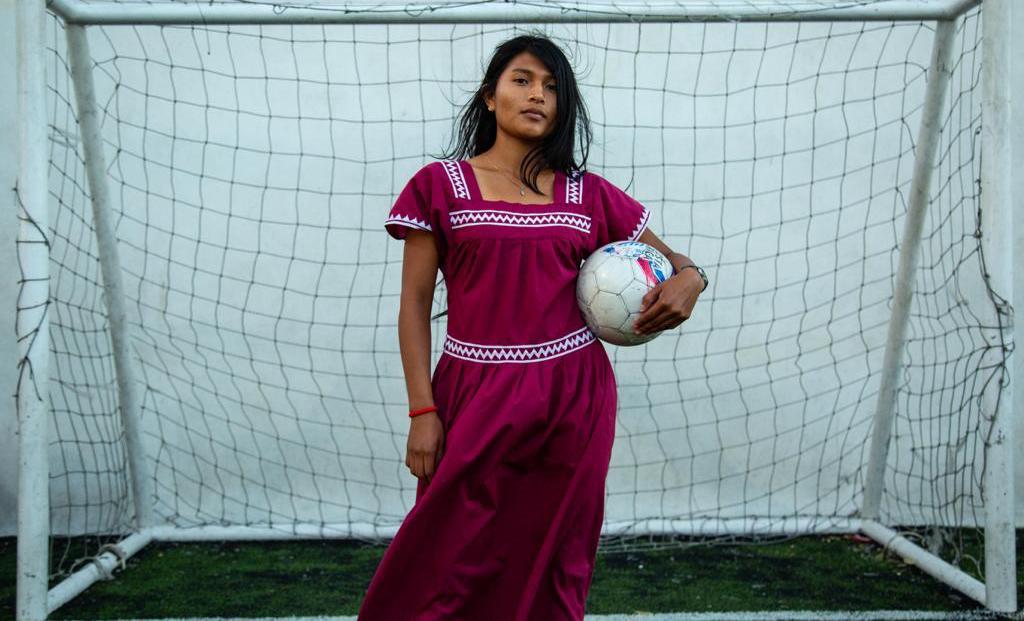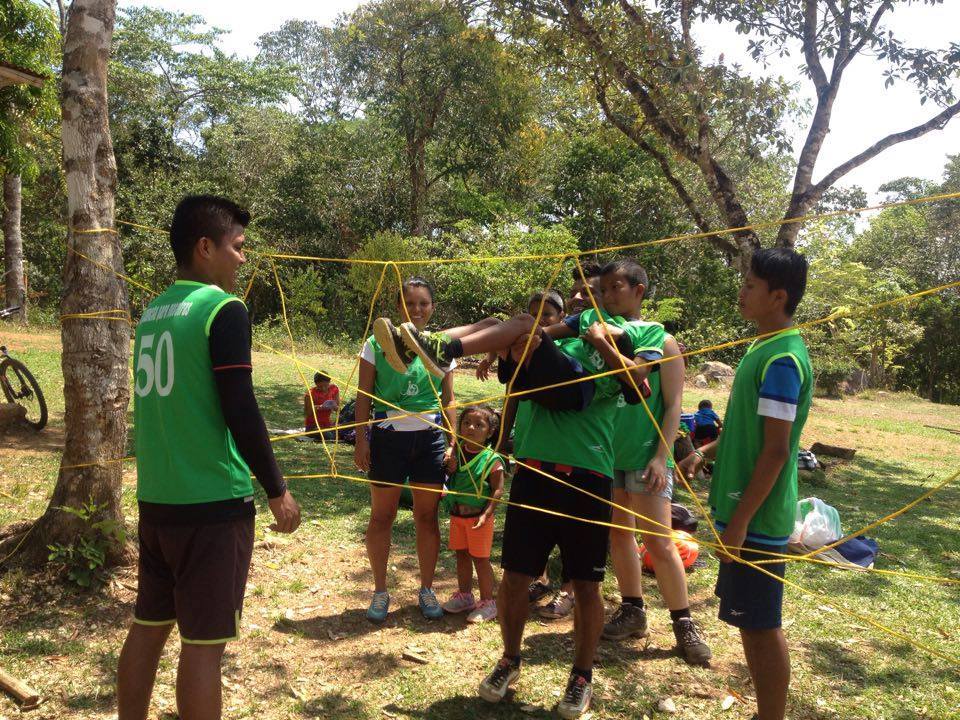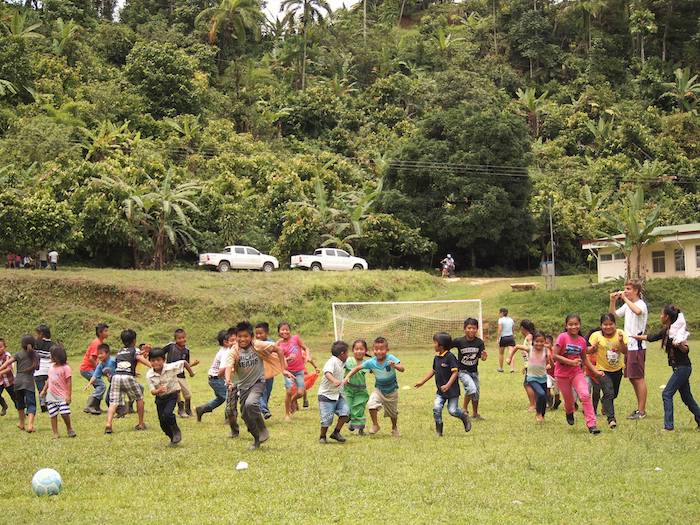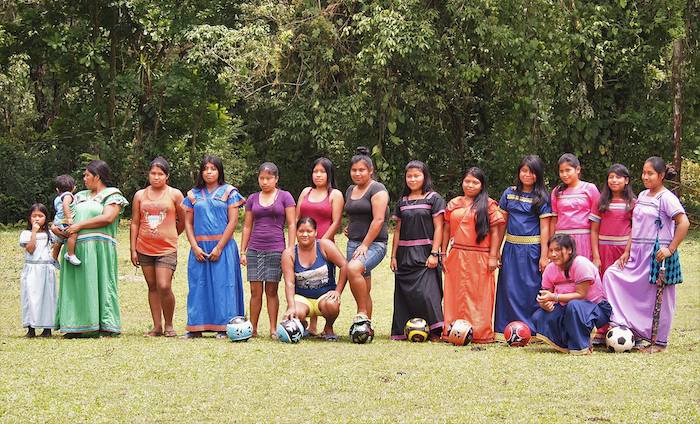
Seprojoven Empowers Indigenous People in Costa Rica
Sport Supporting Indigenous Communities
August 11, 2023
On August 9, Beyond Sport joined the world in celebrating the International Day of the World’s Indigenous Peoples which focuses on promoting and protecting the rights of Indigenous populations. There are 476 million Indigenous people around the world, spread across more than 90 countries. According to the UN, Indigenous people continue to face many barriers including realizing rights to lands and territories and the negative impact of historical and intergenerational trauma caused by forced relocation, assimilation and other traumas.
This year’s theme is "Indigenous Youth as Agents of Change for Self-Determination." In recognition, this month we are taking a special focus on organizations within our network who are serving Indigenous communities through sport.

Today, we’re highlighting Costa Rica-based SEPROJOVEN. The organization’s Director, Alonso Chaves, spoke to us about their programs and initiatives which are promoting intercultural dialogue, human rights, gender equality, inclusion and much more in the country, as well as their expanded work in Nicaragua and Guatemala.
Eight Indigenous Peoples live in Costa Rica - the Huetar, Maleku, Bribri, Cabécar, Brunka, Ngäbe, Bröran and Chorotega - making up 2.4% of the total population. Although the country has adopted the UN Declaration on the Rights of Indigenous Peoples and ratified ILO Convention 169, which recognizes Indigenous peoples' right to self-determination within a nation-state, rights to land and self-determination remain a struggle for Indigenous Costa Ricans.
Nicaragua has seven Indigenous Peoples - the Chorotega, Cacaopera/Matagalpa, the Ocanxiu/Sutiaba and the Nahoa/Nahuatl, while Guatemala includes the Indigenous community of Mayan peoples, the Garifuna, Xinka and of Creole or Afro-descendant peoples who altogether make up 40.5% of the population (6.5 million people).
SEPROJOVEN was founded in 2004 to provide educational and social opportunities for its communities, youth and women especially, promoting development, human rights, gender equality and social justice. Chaves explained that before the organization was created, they traveled to the Indigenous communities to learn about their engagement and organization processes and social movements in the 1990s in order to get a better understanding of the local needs and cultures.
The non-profit uses sports, art and recreation to support the liberation, culture and autonomy of Indigenous peoples and their human rights. It engages around 80 young people between the ages of 13 and 18 annually and believes in sparking generational change through them. Therefore, work is primarily focused on developing and promoting social skills, community leadership and education.

“Young and Indigenous people are among the most vulnerable populations in the region [Central America]. This should place greater emphasis on the search for joint solutions to promote more and better opportunities for these populations. The participation of young people in community decisions and dynamics is important because they are part of the present of the community. They live, feel and have different perspectives of what they want for their community.”
SEPROJOVEN identified the persistent challenges for Indigenous youth as the invisibility of Indigenous people in the country, a general belief that adult perspectives are inherently better, unequal societal power dynamics, the gradual loss of traditions, customs, language and culture as well as the lack of opportunities for further education and high-paid jobs.
In line with this year's World Indigenous Day theme, one of the non-profit's main goals is to develop young leaders and get their voices heard. “Stimulating youth participation offers the possibility of enriching and strengthening culture, promoting community identity, generating inclusive change and encouraging generational changes. In other words, agents of change are promoted.”
Though the organization uses many tools, its main focus is sport and in particular soccer. It uses this to engage with local youth and help instill life skills and leadership skills. "Sport as a tool for social transformation has been shown to be a key element of peaceful societies. [It provides a way] to recognize ourselves through the game and to create community support networks," shared Chaves. "It is not only the vindication of the right to play but to meet and appropriate ourselves as a community, as protagonists of our individual and collective histories. We understand each other through our differences and the diversity that exists in every community."
In Costa Rica, it works in 18 of the 24 Indigenous territories, using football to train young leaders who are committed to advancing their communities. In Nicaragua, SEPROJOVEN works with the Saprissa soccer club to support vulnerable children and young people. It also works with the community of Playa Grande Ixcán, an Indigenous Maya K'iche population in Guatemala where it has created spaces for inclusive sport and soccer aimed at young people from the ages of 12 and 25, as well as young people with disabilities.

SEPROJOVEN’s flagship initiative, Copa Indigena por la Educación y los Derechos de los pueblos indígenas (Indigenous Cup for Education and the Rights of Indigenous Peoples), is a soccer tournament that involves men's and women's teams from communities across the different territories. “Bringing players together from various indigenous cultures increases engagement and value. Everyone shows up to meet the visiting teams and learn about their lives. Soccer is just the hook that brings people together, but the goal is to get people to connect with each other.” Unfortunately, despite its popularity, the tournament was suspended in 2016 after six editions due to funding. Chaves shared that they are still looking for funding opportunities to get Copa Indigena up and running again.
However, born out of the tournament were the Jadengä Bölabdta (for the Nägbes-Buglé peoples) and Mishka Inuk (for the Bribri peoples) initiatives. Both projects mean ‘let’s play ball’ and are tailored towards the language and culture of the specific Indigenous group. Children and youth aged 6 to 18 who are part of the Indigenous territories of Coto Brus, Conte Burica (both Ngäbe-Buglé) and Salitre, Talamanca (both Bribris) are the main participants.
These initiatives target the specific needs of the communities where they were developed and address leadership, sport and physical activity access, human rights, sexual and reproductive health, cultural revitalization and the promotion of entrepreneurship, such as Indigenous rural tourism projects with a cultural perspective.

Additionally, Copa Femenina is a festival held every year in conjunction with the IDEAS organization and Casa Ruah, with support from the Humboldt School of Costa Rica. It brings together over 100 Indigenous women from different groups and often vulnerable communities across the country. The festival includes art and cultural workshops and a soccer tournament with the intention of sharing experiences, traditions and heritage, and most importantly, connecting with others.
Chaves shared that the organization is currently completing a holistic methodology of psychosocial care for young people through weekly sessions to better support the mental and well-being needs of its participants. He hopes to incorporate the methodology into existing and future programs and initiatives.
SEPROJOVEN is a past Beyond Sport Global Award entrant.